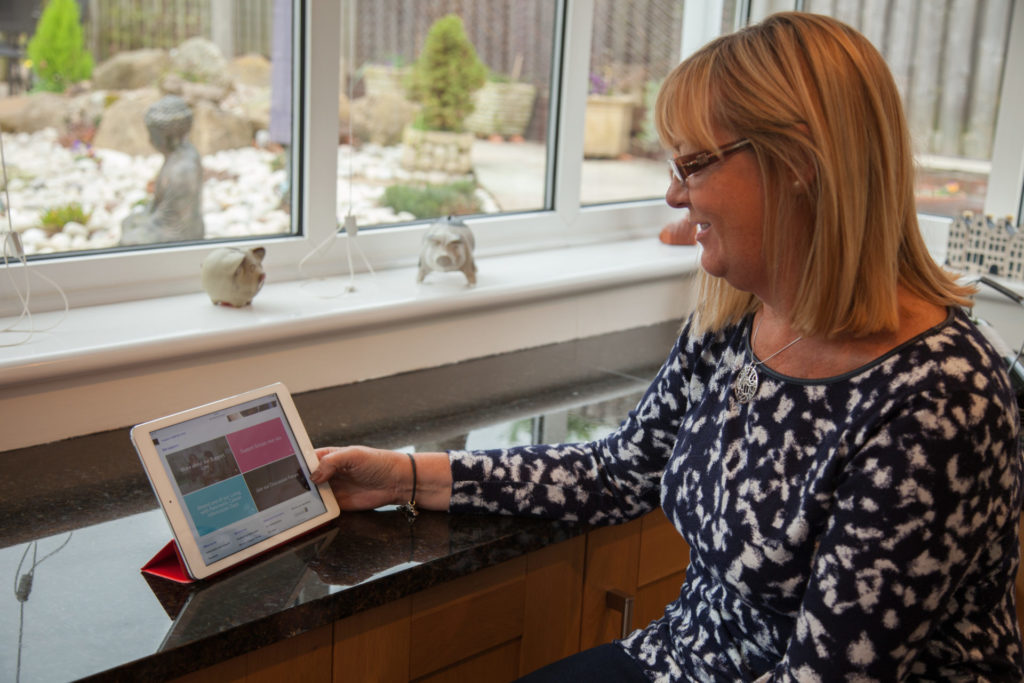



Behind the scenes of the creation of our pancreatic cancer information
Our pancreatic cancer information is accessed over 830,000 times each year - often by people affected by a devastating pancreatic cancer diagnosis.
It’s vital that what we provide a trusted source to help people with the disease navigate the challenges ahead. With the arrival of two new key booklets, Emily Morgan, Senior Information Manager at Pancreatic Cancer UK, tells us a little more about the process behind the pages.


What are the key steps in developing the pancreatic cancer information?
We follow best practice guidance in producing our information to ensure it’s accurate, up-to-date and people with pancreatic cancer can rely on it. All our information is based on the latest research evidence, and we review everything at least every three years to make sure it’s all up-to-date.
It’s important to us that people affected by pancreatic cancer and health professionals review and check all our information. Our specialist nurses are also involved right the way through to check we’ve got the facts right, and that the information covers the questions and concerns people raise on our Support Line. We always use “plain English” guidance to try to make the information as clear as possible, and explain all the medical terms people might come across.
Who are the lay reviewers and experts that you get input from? And why is it so important to get their feedback?
Our “lay reviewers” are people who have pancreatic cancer, people who’ve had it in the past, and family members. They are vital in helping us provide information that people want and need, that answers their questions, and is easy to understand. They also talk about their own experiences, to help people relate and know they’re not alone.
We involve experts in the field to make sure the information is accurate, up-to-date, and reflects clinical practice. Who we involve will depend on the topic, but they include clinical nurse experts, oncologists, surgeons, GPs, dietitians and occupational therapists. We’re always very grateful for the time they give reviewing our information and helping us make sure it’s high quality.


What’s the latest information you’ve developed and why?
We have just developed two new booklets which are guides for people just diagnosed:
- Pancreatic cancer if you can’t have surgery (inoperable cancer)
- Pancreatic cancer that can be removed by surgery
We’ve developed these following feedback from people affected by pancreatic cancer that people have very different information needs, depending on whether they can have surgery or not.
There’s so much to take in when you are given a diagnosis of pancreatic cancer that it can often feel overwhelming, and people want the key information that is relevant to them. These booklets cover the key facts explaining the diagnosis, treatment options, and how to manage symptoms. They also have tips for things you can do yourself, information about support available, and questions to ask the doctors and nurses.
What do you enjoy most about developing new information?
I enjoy the process of writing, rewriting and editing, to explain something in the clearest way possible – creating new information is a continuous process of refining until it’s just right! And I enjoy working closely with our nurses and the health professionals to make sure it’s really accurate. The most rewarding bit is when we get feedback that it’s helped someone.
Can you tell us some memorable feedback you’ve had from people who have used the information?
We get lots of great feedback from patients and families, and it’s always reassuring to hear that we’ve made dealing with pancreatic cancer just a little bit easier for people, as it’s such a tough cancer. Some of the things that stick in my mind include someone who was diagnosed with pancreatic cancer after seeing symptoms they had in our symptoms leaflet, people who have found our end of life information invaluable, and someone who realised he needed to increase his dose of Creon after reading our diet information.
5 facts about Pancreatic Cancer UK information
- Amount of times Pancreatic Cancer UK information is accessed each year: over 830,000 people access our web information, and we distribute over 32,000 pieces of information.
- Most popular publication: Our newly diagnosed pack is our most ordered resource, and the end of life care booklet is the most downloaded from the website
- Number of publications available: 22 resources available to order and 19 others that are download only
- Number of formats available across selected publications: booklets, fact sheets, leaflets, posters, web information, easy read booklets, videos, and our clinical trial finder. And we can provide information in large print, audio and braille
- Average number of reviewers per publication: this will vary quite a lot, but we aim for about 6 lay reviewers and 6 health professionals. It could be a lot more though especially for new publications.
If you’d like to find out more about our information, please visit our publications section.

